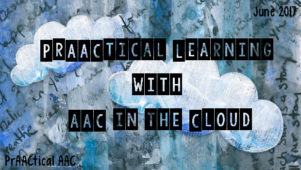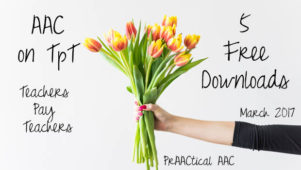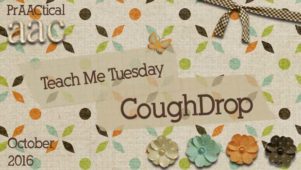Communicating with CommuniKate
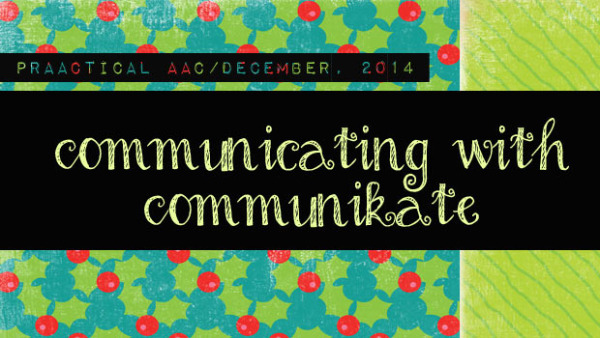
We’ve talked a lot about innovative communication displays and today we’re going to highlight a recently released one. I was delighted to hear about CommuniKate from Dr. Joe Reddington, who blogs at joereddington.com. Joe is a principal of White Water Writers, a project that trains teachers and youth leaders to run inspiration literacy camps, and works toward a world where all children can hold books they have written. He researches ethical issues around power and control in the context of communication disability, and produces open datasets for AT provision, among other things. In this post, Joe introduces us to CommuniKate. 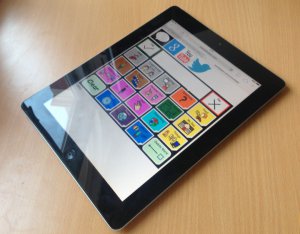
CommuniKate 20 is a socially focused page set designed exclusively for people who use augmentative and alternative communication (AAC). It was designed so that it could be easily used in conjunction with a low-tech communication book and as a progression from a book to a dynamic display device. It covers core vocabulary and range of carefully selected topics. It was designed by Kate McCallum, who currently works as a Specialist Speech and Language Therapy Technician. She has worked in the field of AAC for the past 15 years and qualified as an Occupational Therapist in 2013.
What makes CommuniKate 20 a little different is that it’s an entirely free-to-use transferable page set released under a Creative Commons Licence using freely licensed symbols. This means that there are no legal barriers preventing people from putting CommuniKate 20 on any device at all. So a user being switched from, say, a PRC device to a Dynavox device ( due to breakages, cost, or some other factor) can load the Dynavox version of the communication display up. That way the user has a chance to get used to new hardware without also having to learn a whole new language.
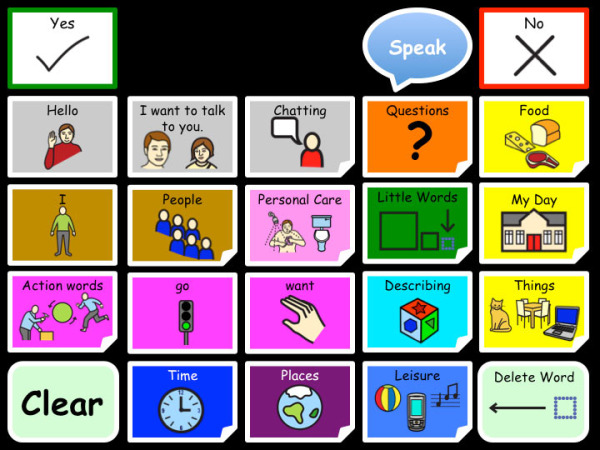
The CommuniKate homepage is at this link. It’s worth exploring the demo, and having a glance through the really quite substantial manual. Because it’s been designed entirely as a not-for-profit project the developers have had a lot of help, with people providing translations (you can check out the particularly completed Portuguese demo here), and helping to transfer the displays to new devices.
We are big fans of Creative Commons and free licensing at PrAACtical AAC, particularly because we are aware of the cost constraints that families and SLPs work under. We’re looking forward to seeing how the community gets involved and builds on the work done here.
Filed under: PrAACtical Thinking
Tagged With: CommuniKate, free, Joe Reddington, open source
This post was written by Carole Zangari

